 Between reading Sarah Hall’s three novels earlier this year and Ross Raisin’s debut novel, I’ve found to my astonishment that I’ve become more than a bit obsessed with the Northern English dialect. One striking quality of Ross Raisin’s quite disturbing debut novel, God’s Own Country (known in the U.S. as Out Backward), is its reliance on very specific slang to advance the novel and to occlude the reality of what’s happening before us. I became so wonderfully caught up in the words that Raisin pulled a fast one on me, and I ended up abdicating my own common sense. The book’s nineteen-year-old first-person narrator, Sam Marsdyke, lives in a small town in Yorkshire and clings to a vernacular in an effort to assert his frequently misunderstood and often besmirched individualism. The effect becomes one in which the outside reader hopes to understand this troubled character, lest the reader be IDed by Marsdyke as one of the superficial “ramblers” (or tourists) invading his home turf. And the prose’s close association with the Northern England landscape creates a fascinating dilemma for anyone attempting to masticate upon this book on multiple levels.
Between reading Sarah Hall’s three novels earlier this year and Ross Raisin’s debut novel, I’ve found to my astonishment that I’ve become more than a bit obsessed with the Northern English dialect. One striking quality of Ross Raisin’s quite disturbing debut novel, God’s Own Country (known in the U.S. as Out Backward), is its reliance on very specific slang to advance the novel and to occlude the reality of what’s happening before us. I became so wonderfully caught up in the words that Raisin pulled a fast one on me, and I ended up abdicating my own common sense. The book’s nineteen-year-old first-person narrator, Sam Marsdyke, lives in a small town in Yorkshire and clings to a vernacular in an effort to assert his frequently misunderstood and often besmirched individualism. The effect becomes one in which the outside reader hopes to understand this troubled character, lest the reader be IDed by Marsdyke as one of the superficial “ramblers” (or tourists) invading his home turf. And the prose’s close association with the Northern England landscape creates a fascinating dilemma for anyone attempting to masticate upon this book on multiple levels.
The verb “gleg” is the neologism that is most frequently used throughout the book. “Gleg” is more commonly used as an adjective in Scotland and means “alert and quick to respond,” but, in Raisin’s hands, it’s often used as a gruff surrogate for “look.” To gleg is to retreat in some sense. But glegging also involves the only place where Marsdyke can maintain his identity. Glegging may be somewhat good for all of us, provided we do not glog in the process.
But because I had the reaction that I had, what follows is an effort to track the many interesting words throughout Raisin’s novel, which may prove of help to readers tackling this interesting novel. Standard British slang terms like “sod” and “tosspot” are ignored. I’m hoping to provide more additional information about specific words as I learn more about them. Page numbers refer to the American edition of the book. Readers are invited to comment upon any additional findings or clear up any etymological mishaps.
aflunters: Yorkshire term for “in a state of disorder.” Usage in Book: “the ew was all aflunters” (95), “my head was too aflunters” (157)
bairn: Scottish term for “child.” Usage in Book: “When I was a barin I’d kept…” (28, ref. to Gilbert & Sullivan’s HMS Pinafore?) “a list of bairns, couplings and dead” (41), “I’d gave him that mug as a bairn” (99)
barmpot: A clumsy idiot. Var. of barmy. Usage in Book: “You barmpot, it’s the middle of the bleeding night.” (23), “laughing together like barmpots” (143)
babby: Often used in Northern dialect as a noun for baby or child, Raisin has his narrator sub in a noun for an adjective. Usage in Book: “a babby little feller” (10) “looking like a babby” (50), “I just lay there like a babby with my lids shut” (89), “feel for the babby” (95), “The ewe was licking at her babby” (114), “the rustle of a babby too full of dander to sleep” (123), “my babby, my babby, you’re alive” (126)
beltenger: A Hungarian term for enclosed or inland sea. Usage in Book: “a beltenger of a storm on the ocean” (33)
blatherskite: A Scottish noun for a noisy talker of blatant rubbish. The usage in the book sees Raisin again using a noun in verb form. Usage in Book: “and blatherskite about that rude Marysdyke boy” (66) Also, the local newspaper is referred to as The Blatherskites’ News.
bogtrotted: Originally, a bogtrotter was an offensive term for an Irishman. But it also means one who trots around bogs. Usage in Book: “to show all the places they’d bogtrotted over” (134), “gone off bogtrotting” (168)
brazzent: Yorkshire for “inadvisably generous.” Usage in Book: “a brazzent-looking farmer in a raggedy jacket” (149)
budgerigars: An Australian parakeet. (Perhaps the fact that Mum keeps many budgerigars in one of the farm’s rooms is a wry allusion to Australia’s origins as an English prison colony? Or does this have something to do with the budgerigar’s ability to survive in very dry parts of Australia?) Usage in Book: “That, or she was talking to the budgerigars.” (3) “She thought her buderigars were bonny and all” (47), “the buderigars chattering bollocks at each other” (99), “I was sure the budgerigars would start chattering” (127), “chattering away like budgerigars” (175)
buffit: Stool. Another term used in Wakefield. Usage in Book: “who’d take over his buffit in the corner” (29), “bar buffits reeking with fifty years of smoke” (102), “hunkered over on a metal buffit” (120), “using our bags as buffits” (153)
bummelkite: An obscure 19th century word for blackberry. From an 1895 article, “The Cumberland Dialect,” The Gentleman’s Magazine: “a very puzzling word, and the glossaries do not explain it. Some vocabularies treat it as a corruption of bramble-kite, only to make that darker which was dark enough before, because it leaves the final syllable unexplained.” Usage in Book: “The drone of the brummelkite filled my brain” (145)
charver: Var. of chava. Unruly youth. Usage in Book: “like my old charver on the pier” (193)
choiled up: Pent up, guarded. Don’t know precise etymology, but it’s definitely a Northern English term. Usage in Book: “She was proper choiled up a long while” (116)
chunter: to grumble or grouse mildly or tediously. (Again, like “gleg,” what’s striking is the way that Raisin often uses this verb as a noun.) Usage in Book: “a chunter of talk came through the door-crack” (4) “chuntering in his corner” (31), “chuntering to some old cloth-head at the counter” (57), “I heard him chuntering, fuck off, or something like that” (63), “leaves chuntering with the wind” (71), “She chuntered off to the cupboard with the tins” (92), “she was chuntering to herself” (98), “You’d hear the moles chuntering” (115), “I’d hear him chuntering” (149), “no lasses chundering in the deep-fat fryer” (164)
clog-poppers: Those who have recently died. (Related site.) Usage in Book: “But I marked toward the other end the paper, near the clog-poppers….” (42)
collywobbles: Stemming from the Latin term for cholera, usually in reference to a rumbling stomach. Colly is English dialect for dust. Usage in Book: “for she had the collywobbles” (82, which comes shortly after “a smudgy coal-cloud” seeps around the house)
crambazzled: A very specific Northern word for a man who is old before his time, generally due to illness or drink. Usage in Book: “I hadn’t crambazzled myself half to death with drink as yet.” (32)
crammocky: “Crammocky creel” is a Yorkshire term for a wooden framework hoisted to the ceiling, generally used for drying oatcakes or clothes. Usage in Book: “my joints all crammocky from lying still so long” (59), “I stood up and paced crammocky circles” (143)
crozzle: Yorkshire use. To dry out and become crispy due to burning heat. Usage in Book: “the skin underneath all crozzled with drowsiness” (176)
daffled: Baffled. You’ll probably remember this one from Bram Stoker’s “We aud folks that be daffled” in Dracula although I can’t seem to find a specific etymology. Usage in Book: “She looked daffled then” (104)
doylem: Yet another Yorkish word for idiot, of which there are quite a lot of in this book! Usage in Book: “Talk to her, you doylem…” (50), “for he was a doylem” (101)
ferntickle: A Northern dialect word for freckles. Comes from ME farntikylle — resembling the seed of the fern. Usage in Book: “I could see the little brown ferntickles speckling her nose and the tops of her cheek.” (14)
fizzogs: From “physiognomy.” Shorthand for face. Usage in Book: “some by the looks on your fizzogs” (33)
flowtered: Yorkish folk term for in being in a state of trepidation or nervousness. Usage in Book: “my brain had been flowtered by those gommerils in the car” (43), “No, I said, flowtered…” (57), “I didn’t know what they were so flowtered about” (73), “The ewe will start to get flowtered first” (94), “she got flowtered when she saw it” (124), “I got flowtered then” (138), “I started getting something flowtered” (164)
fratchen: Yorkshire. To argue. Usage in Book: “she didn’t fratchen with me” (153)
gawby: A baby, a dunce. (1913 Webster, provincial in some sense, but what province precisely?) Usage in Book: “If I’d not been such a gawby forgetting about maggots….” (17), “turned into a gawby” (188), “a herd of gawby sergeants” (194)
gleg: See introduction. Usage in Book: “I went for a gleg in the freezer….” (4) “a quick gleg past him” (11) “When I glegged in…” (27) “I glegged in at him…” (32) “A few of the other sheep glegged up.” (40) “I was itching for a gled across at her.” (51), “too far yet to gleg inside” (65), “I never got to gleg what he’d written” (92), “Father glegged up at her” (100), “I glegged an eye up” (103), “I was worried someone else might gleg the message” (113), “I glegged another look at my watch” (123), “I glegged round to see if she was watching” (125), “glegged up an instant from their crossword puzzle” (136), “glegging an eye at me over the top” (137), “He had a gleg round once” (142), “I glegged over the stump top” (144), “glegged me gaining” (172), “I glegged the four-by-four” (175), “I tried to gleg the entrance pool” (181), “He’d always gleg over at me” (202)
glishy: Sticky. And while there are many usages of this adjective which can be found on Google, I can’t seem to determine where the word originated from. A Verdurian term? Is Raisin an RPG enthusiast? (This may explain the many references to board games, including Monopoly and Scrabble, throughout the book.) Usage in Book: “glishy magazines of horse arses jumping over a fence” (10), “all bright and glishy like a piece of flesh with the skin torn off” (100), “the glishy black stones” (184)
gommeril: A fool. Dialectical, common to Yorkshire. Origin unknown. Usage in Book: “still red from before with the gommerils” (35), “my brain had been flowtered by those gommerils in the car” (43)
heart-slufffened: Heartbroken. Unknown origin, but spoken in the 1860s. Usage in Book: “she was so heart-sluffened” (154), “sat sluffened” (173)
hubbleshoo: A Yorkshire term for commotion that can be traced back to 1855. Usage in Book: “a hubbleshoo of noise” (24) “the hubbleshoo of small boys spewing out the bus” (42), “a hubbleshoo of bleats” (68), “a hubbleshoo of activity” (112), (189)
jarp: To strike or smash. More spec., to crack a hard-boiled egg with another. This is an Easter game. Durham & Tyneside dialect. Usage in Book: “My hands jarped off from the vibration.” (38), “Wetherill’s shout jarped my attention” (145)
jipping: From A Dictionary of Slang and Unconventional English: “staining (part of a horse) with India ink to conceal a blemish. Usage in Book: “My neck, bag and legs were all jipping from stones and heather tangles…” (129)
kecks: Variation of the Yorkshire “kegs” for trousers. Usage in Book: “Blotchy wiping his hand on his kecks” (76), “the band of my kecks” (150), “dragged my kecks” (200)
ligged out: Yorkish term for “laid out.” Usage in Book: “with the pup ligged out between” (58), “Sal was ligged out retching in the stable” (83), “ligged out on the slope of the hollow” (107), “one of the sheep ligged out between the wall and the back of the pen” (123), “I ligged out on my belly” (133)
lugger-bugger: Mover. Marsdyke is quite taken throughout the book with singsong hyphenated nouns that rhyme. See also “mother-smothering” on 6. Usage in Book: “as if they feared the lugger-buggers might set it in the vegetable plot” (5), (7)
mafted: Yorkshire. Very hot or breathless. Usage in Book: “I was mafted from walking so quick” (164), “a mafting hot afternoon” (168)
mardy: See H2G2 entry. Usage in Book: “she wasn’t mardy any more” (156), “she was mardy again” (169)
mawnging: “Mawngy” is a Yorkshire adjective for bad-tempered, but Raisin has appropriated it for use as a verb. Usage in Book: “there was nothing any of them could do about it but for mawnging” (29) Another hint: “a mawngy crow sat in a tree gawping into space.” (68), “didn’t mawnge about it” (153)
nazzart: North East dialect for rascal. Usage in Book: “the bone-idle nazzart” (100), “Get back here, you old nazzart” (140, 143), “my brain was in a nazzartly mood” (168)
nithering: To shiver or tremble with cold. Scottish and Northern English. Variation of “blithering.” Usage in Book: “A month on and you’d stil be nithering cold if you came up there without a coat.” (96)
nobbut: Yorkshire adverb for “only.” An homage to Alan Titchmarsh’s Nobbut a Lad? Usage in Book: (42)
panacalty: I’ve heard of the Northern English dish panacalty, but I haven’t tried it yet. Here’s a recipe. Usage in Book: “I’ve panacalty on the go” (112), “fried up their bacon and their panacalty” (147)
parkin: A kind of ginger cake originating in Northern England. Usage in Book: “She was making the Christmas parkin.” (79), “I bolted another piece of parkin.” (81)
powfagged: Lancashire term for “tired.” Usage in Book: “powfagged and sleepy-eyed from the walk” (58), “we were powfagged after our adventures” (142)
raggald: A Norse term for “villain” used in Calderdale. Usage in Book: “That raggald — he pushed me over the side!” (33)
ramblers: hikers wandering the English countryside. In the book, Marsdyke speaks perjoratively of the ramblers and, at one point, gets into a violent skirmish with them. Although the term can’t be found in this helpful British slang dictionary, it is used in this 2003 BBC News article. Usage in Book: (1), “bright enough the ramblers needed their sunglasses” (56), “Ramblers’ pub other side of Felton Top” (56), “ramblers arfing and barfing about cuckoos and the like” (72), “I hadn’t caught on it was her at first, I’d thought it was a rambler” (99), “We were proper ramblers now” (131), “He must’ve stole it off a rambler” (134), “Well, ramblers, it’s a gradely day for it” (169)
sarnie: sandwich. Usage in Book: “She threw another piece of sarnie.” (108), “She’d even made sarnies.” (132), “punnets of sarnies” (146), “munching us sarnies in quiet” (153), “ate the rest the sarnies” (157)
scarper: to flee or depart suddenly; esp. without having paid one’s bills. Usage in Book: “I waited for them to scarper…” (3) “The whelps were scarpering.” (20), “I kicked the fallen sarnie at him and scarpered” (150)
scran: Slang for rations. Usage in Book: “She had a scran with her and all” (99)
sile: To rain heavily. Yorkshire. Usage in Book: “listening to the rain sile down” (154), “siling down like this” (156)
skittled: Skittles is, of course, a game of ninepins involving a wooden ball or disc knocking down pins. Usage in Book: “It was a job to keep from laughing as they skittled about…” (2)
Related: Interestingly, Raisin has Marsdyke use “skitter” in reference to the girl he’s mad about on 5. “Skitter” is close to “skittle,” both in sound and definition. But it is a less parochial verb. (There is also “skiffling for her bag” at 107 and “it skiffled about in the straw” at 125.) Thus, is this Marsdyke’s attempt at understanding the new neighbors? Another variation is “upskittled”: “I had an upskittled frame of the whelps cowering under Father’s chair” (20), “I wasn’t mighty upskittled to hear she wasn’t helping” (65)
snicket: Known predominantly as the surname of Daniel Handler’s pen name, “snicket” is actually a Northern term for a narrow passageway between two houses or an alleyway. And knowing the precise definition makes Raisin’s usage of the word particularly fun. Usage in Book: “I saw a thin snicket between two books cocked against each other.” (13), “except for a snicket where it wasn’t drawn fully” (136). Also snickleway: “down a snickleway between a house and the back the station” (140), “a snickleway path through the yellow” (147)
snitter: Snitter is not only a village in Northumberland, but it’s the name of a character in Richard Adams’s The Plague Dogs. Snitter was a fox terrier sold to animal research after his master had died. In light of the book’s emphasis on dogs and whelps, this usage has multiple meanings. Usage in Book: “a snitter of talk” (42)
spiceloaf: Is Raisin a Star Wars geek? I can find no trace of the word, but it was used in Aaron Allston’s Star Wars novel, Betrayal as a food consisting of dense meat ground, spiced, and heated to order. Allston is a Texan. I do not know if Allston appropriated the term from Northern England or if Raisin caught sight of the word in the Star Wars novel or invented it on the fly. (Aha, it is a Yorkshire term for currant bread. So where did Allston get it?) Usage in Book: “a look in her eyes that said, I’m a loopy old spiceloaf” (65)
sump-pool: There are two British-specific definitions for “sump” in my unabridged dictionary: “4. Brit crankcase 5. Brit Dial. a swamp, bog or muddy pool.” The usage of “sump-pool” refers to the latter definition, but perhaps foreshadows Marsdyke’s perception as a crankcase by some within the small town he dwells in. Usage in Book: (1), “mud-sumps around the gate” (96)
tantled: Yorkshire for “to waste time, to dawdle.” Usage in Book: “I tantled near the entrance” (148)
Tesco: A British supermarket chain. Used to delineate the difference between ramblers and countrymen in a humorous context at the beginning of the book. Usage in Book: “That is such nice ham. / Isn’t it? Tesco, you know.” (2)
tidgy: Variation of twitchy, but Yorkshire specific? Usage in Book: “stumbling about the place on tidgy twig-legs.” (94), “picking tidgy wooden forks into cartons” (182)
trull: Trull is known to be an affluent area in Somerset. But the usage here is likely to involve the female prostitute or harlot definition used by Joyce and Kipling. Usage in Book: “the whiskery old trull” (22), “you daft trull” (171)
trunklements: This is actually an obscure and regional word of slang that specifies “any other items, not specified.” “Trunklements” appear to be associated with the West Yorkshire city of Wakefield. Usage in Book: “I fetched a basket, cloth, and some other trunklements…” (9), “pictures and trunklements off the walls” (101), “all manner of trunklements in the window” (141), “some feckless trunklement no one would ever buy” (181)
unsneck: To unlatch or unfasten. Found in A Glossary of Words Used in South-west Lincolnshire (1886). Usage in Book: (10) Also “sneck” in “I snecked open the gate to her garden.” (80), “a sneck-lifetr” (169), “unsnecking the cord” (188)


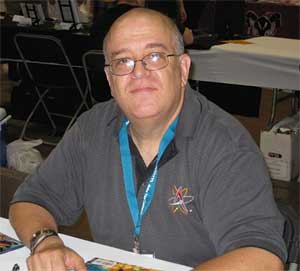 Correspondent: I’m wondering though if there has ever been an instance in your comic career, in which an editor has come to you and said, “Hey, Peter, the sales for this particular title are flagging. What can we do to raise things up?” Has this ever an influence?
Correspondent: I’m wondering though if there has ever been an instance in your comic career, in which an editor has come to you and said, “Hey, Peter, the sales for this particular title are flagging. What can we do to raise things up?” Has this ever an influence?

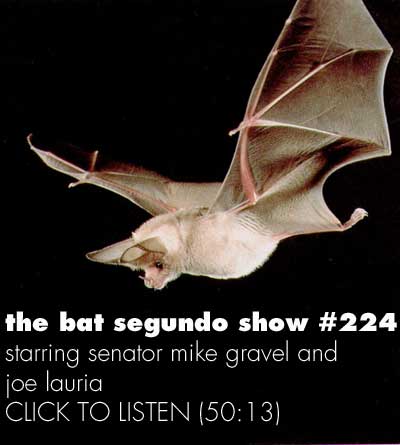
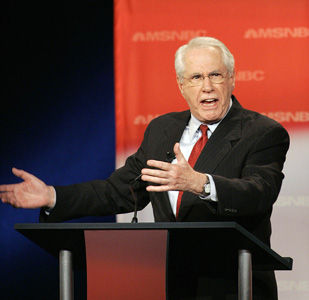 Correspondent: A question to both of you. The modifier that frequently ripples, so to speak, throughout this book in relation to war is “unnecessary.” You question Woodrow Wilson’s motives for getting us into World War I, writing that America was not threatened. Yet I must bring up the bombing of the Lusitania. And I must also point out that there was the Kingsland Explosion. The Zimmerman telegram. I mean, what is a necessary war? Was America really not at threat in World War I? Is this what you’re saying?
Correspondent: A question to both of you. The modifier that frequently ripples, so to speak, throughout this book in relation to war is “unnecessary.” You question Woodrow Wilson’s motives for getting us into World War I, writing that America was not threatened. Yet I must bring up the bombing of the Lusitania. And I must also point out that there was the Kingsland Explosion. The Zimmerman telegram. I mean, what is a necessary war? Was America really not at threat in World War I? Is this what you’re saying?
 Correspondent: But not every man, Faye, is going to sit down and slap thousands of dollars wanting to get laid like this.
Correspondent: But not every man, Faye, is going to sit down and slap thousands of dollars wanting to get laid like this.

 With the Bell Atlantic-GTE deal receiving FCC approval, Verizon began making quiet payments to ensure its continued expansion. GTE
With the Bell Atlantic-GTE deal receiving FCC approval, Verizon began making quiet payments to ensure its continued expansion. GTE  It should be pointed out that NorthPoint enjoyed a great success between 1999-2000, with
It should be pointed out that NorthPoint enjoyed a great success between 1999-2000, with 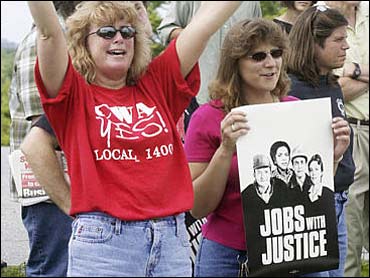 Back on the picket lines,
Back on the picket lines, 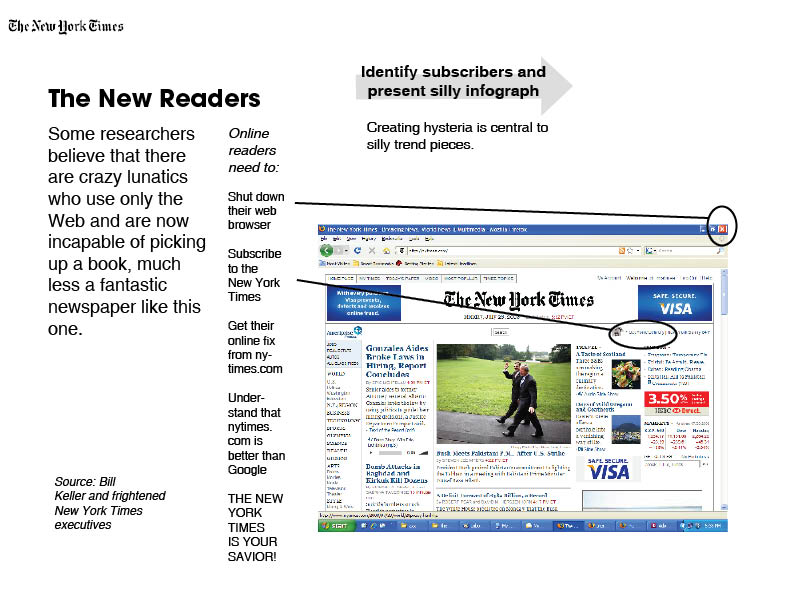


 Bell Atlantic
Bell Atlantic  Whatever Kennard’s current feelings are for Verizon, one thing is beyond dispute.
Whatever Kennard’s current feelings are for Verizon, one thing is beyond dispute.  There was some concern over the relationship between third-party vendors offering products to Verizon and Verizon’s dominance in the telecom industry. In July 2000,
There was some concern over the relationship between third-party vendors offering products to Verizon and Verizon’s dominance in the telecom industry. In July 2000,